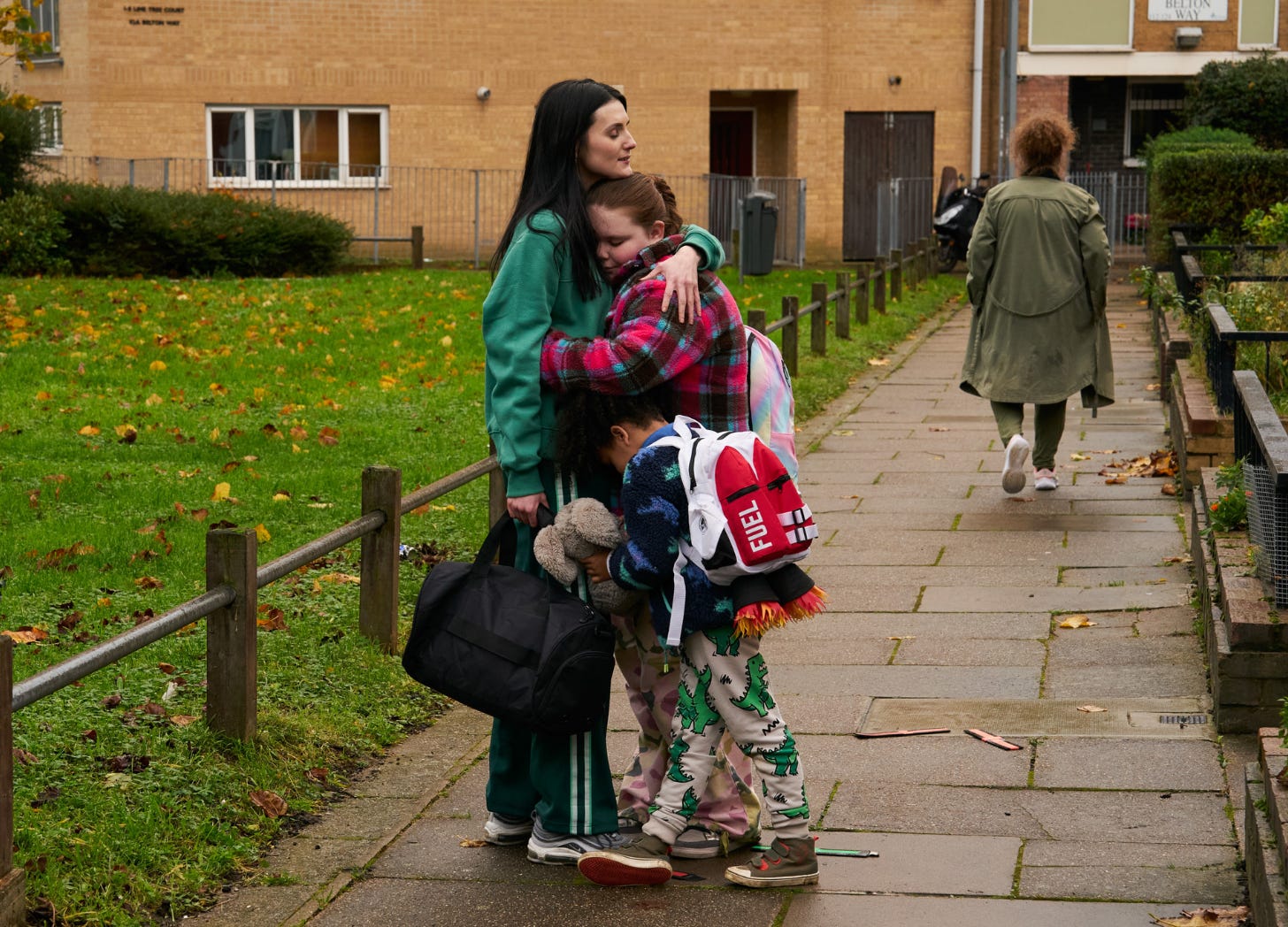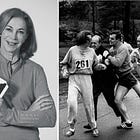My new film LOLLIPOP has no speaking roles for men - here’s why
Often we’re just one choice, one job loss away from being on the other side of the table.
By Daisy-May Hudson, filmmaker
Over the last five years of writing my new film, LOLLIPOP, I imagined being asked one question.
Alongside daydreaming about playing it to our first audiences, I knew I’d be asked why the film has no speaking roles for men. I’d always imagine myself replying, “why don’t we ask that for all the films where women barely utter a word?”
LOLLIPOP tells the story of Molly, who comes out of prison ready to pick up her children, Ava and Leo, but finds she can't get her children back until she has somewhere to live - but she can't get somewhere to live until she has her children back. It’s the mother of all Catch-22s.
For me, the choice of an all-female cast was to avoid easy stereotypes where men are the perpetrators of our stories. I noticed that as I was writing, I was writing the characters which had a more negative role as men, based on my own bias and experience - men have often been the perpetrators in my own story. But I caught myself, and wanted to move to a place beyond that. One where we are questioning the system and values of patriarchy, and not the people affected by it - including men.
In my experience, a lot of these roles in the prison and state systems Molly comes into contact with would naturally be women. Throughout the writing of LOLLIPOP, I worked with lived experience consultants: an incredible young Somalian theatre maker, Sabrina Ali, a passionate family lawyer, who also plays Dee in the film, called Sherma Polidore - as well as judges, social workers, housing officers, and probation support.
I believe having only women speak - apart from a little boy - makes this film the voice of the feminine. For me, it solidified that all these women are reflections of Molly. Everyone is just a woman doing their best. Often we’re just one choice, one job loss, one thing a teacher says to us at school, away from being on the other side of the table. In the film you can see that the women in these roles - sometimes played by those with lived experience of the themes - really feel for Molly, but have to go through the motions of what is expected of them.
I also wanted to honour the power of collective sisterhood that exists even in the mirror of bureaucracy bound by red tape: Molly’s friend from college, Amina, helps her take her into their own hands.
My focus was also on the impact of maternal imprisonment. Many women go to prison for non-violent crimes and very short sentences, while their children lose their home and go into care. Ultimately I wanted to question whether these women -of 70% whom have experienced domestic abuse, 50% who have experienced sexual or emotional abuse - should go there at all, or should receive help instead, because the impact on the next generation is huge.
Related articles
The film would pass the ‘Bechdel test’, but I think it’s bizarre that a measure of whether women in a film talk about anything outside of a man even exists. But it does highlight who's been writing the stories.
Unfortunately, this story isn’t a one off - it is a historical and ancestral one all over the world, whether that’s indigenous women having their children removed and put into institutions, Irish mothers having their children taken by the church or single mothers in workhouses seen as indecent and removed from their children. When I spoke to one of our incredible advisors, Emilia Rose Porter, who has had her children removed (and got them back, I might add!), she said “we are the scarlet women”.
So this film is for all the women that have been told they are too bad, too wrong, too much, too emotional, too angry, too soft, too sexy, too tough. Molly (played by the incredible Posy Sterling) represents a full woman. She carries a lioness’s spirit and determination to be reunited with her children, which allows her to touch divine rage when she needs it. She’s not always perfect, but she’s always motivated by love.
LOLLIPOP is in UK cinemas nationwide now








This sounds amazing - the movie, the subject matter, but also the way of writing it.
Thank you for profiling this film.